No products in the basket.
Scientifically proven skincare
To date many studies and the analysis of the skin biopsies demonstrated that retinoic acid increased epidermal thickening, upregulated gene expression related to skin functions, and increased collagen synthesis in skin.
In combination with Vitamins C, retinoids are even more effective in treating both the effects of intrinsic and extrinsic ageing.
There are two primary skin ageing processes, intrinsic and extrinsic. Variations in individual genetic background are thought to govern intrinsic ageing, which results as time passes. Extrinsic ageing is engendered by factors originating externally that are introduced to the human body, such as smoking, excessive alcohol consumption, poor nutrition, and chronic exposure to the sun.
Of these external factors, sun exposure is considered to be far and away the most significantly deleterious to the skin. Indeed, 80% of facial ageing is believed to be due to chronic sun exposure.
A comparative study of the effects of retinol and retinoic acid on histological, molecular, and clinical properties of human skin
First published: 18 November 2015
Main points: Four weeks of retinoic acid and retinol treatments both increased epidermal thickness, and upregulated genes for collagen type 1 (COL1A1), and collagen type 3 (COL3A1) with corresponding increases in procollagen I and procollagen III protein expression. Facial image analysis showed a significant reduction in facial wrinkles following 12 weeks of retinoic acid and retinol application.
In addition to prolonged sun exposure, numerous other intrinsic factors, such as diabetes and hypothyroidism, have been shown to cause epidermal atrophy, reduced fibroblast proliferation and decrease matrix synthesis. These effects can be reversed with retinoid treatment, specifically noting an increase in epidermal thickness and collagen production.
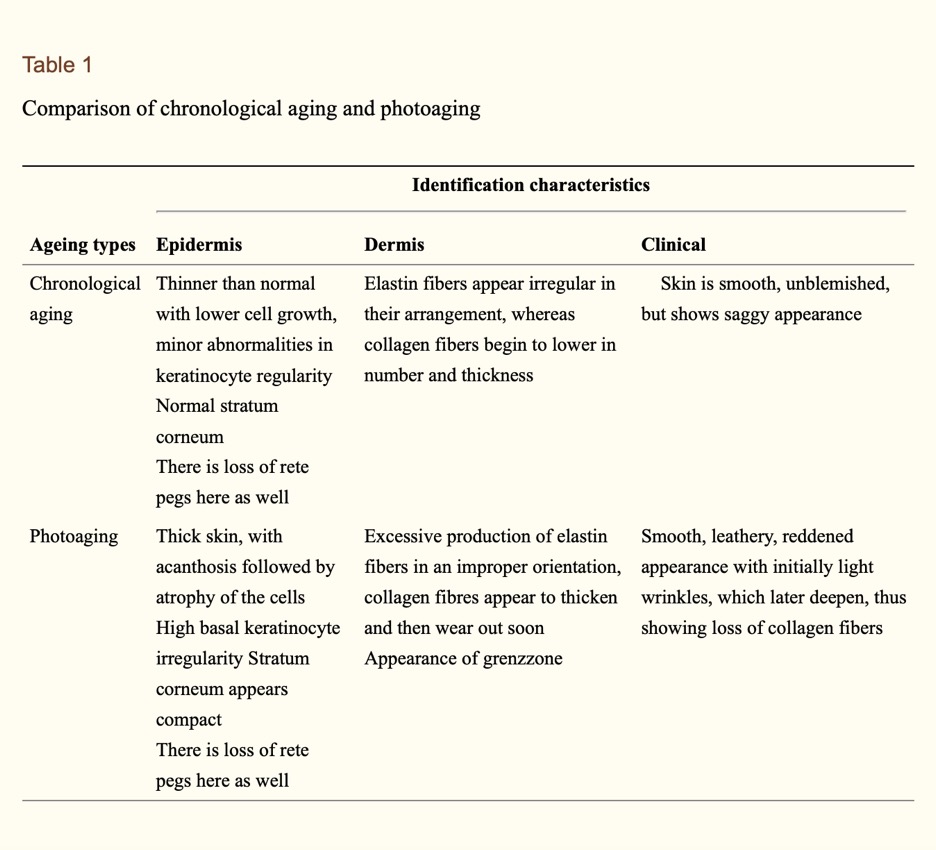
Copyright: Mukherjee S, Date A, Patravale V, Korting HC, Roeder A, Weindl G. Retinoids in the treatment of skin aging: an overview of clinical efficacy and safety. Clin Interv Aging. 2006;1(4):327-348. doi:10.2147/ciia.2006.1.4.327
Retinoids in the treatment of skin aging: an overview of clinical efficacy and safety
First published: 2006
Main points: Amongst various anti-aging agents, retinoids are the most promising agents that are available for the treatment of aging. Amongst retinoids, tretinoin is the most potent and best-studied retinoid.
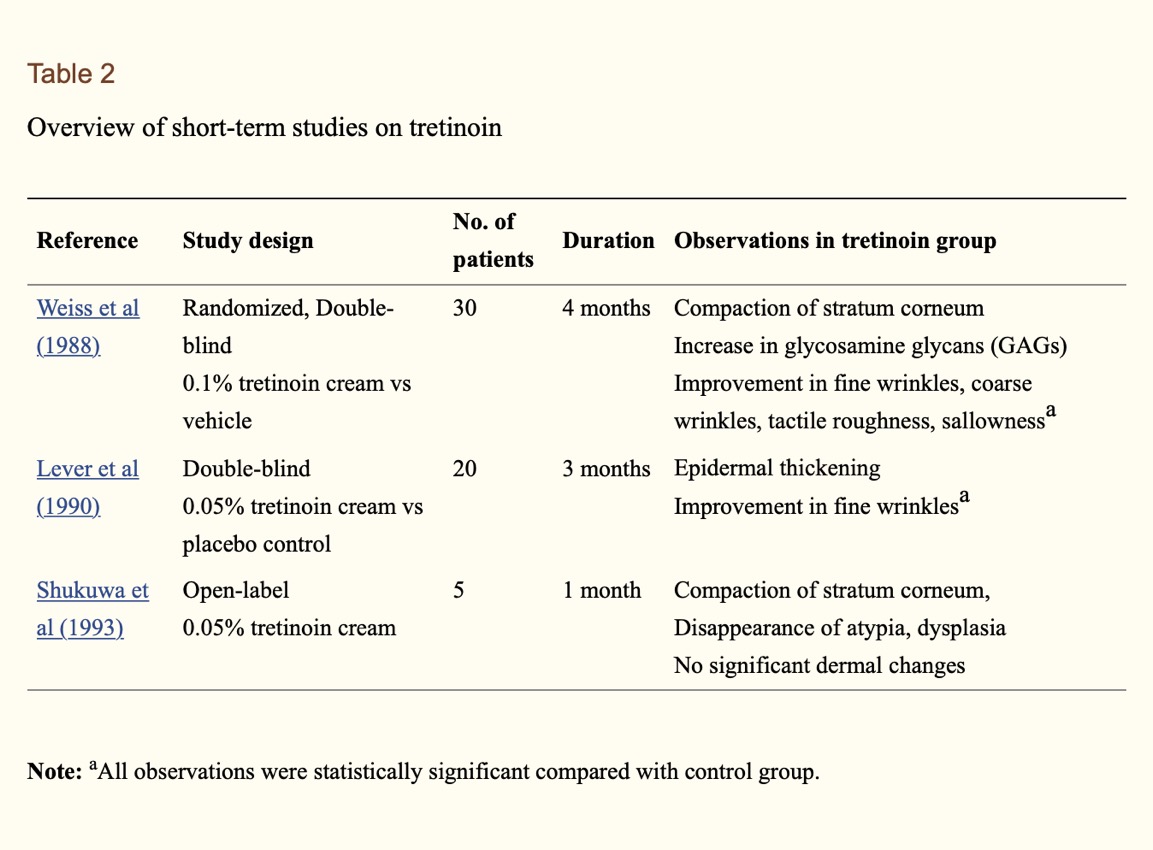
Copyright: Mukherjee S, Date A, Patravale V, Korting HC, Roeder A, Weindl G. Retinoids in the treatment of skin aging: an overview of clinical efficacy and safety. Clin Interv Aging. 2006;1(4):327-348. doi:10.2147/ciia.2006.1.4.327
Retinoids in the treatment of skin aging: an overview of clinical efficacy and safety: Vitamin C combination
First published: 2006
Main points: The study concluded that repeated topical application of both retinoid and vitamin C could reverse, at least in part, skin changes induced by both chronological and photoaging.
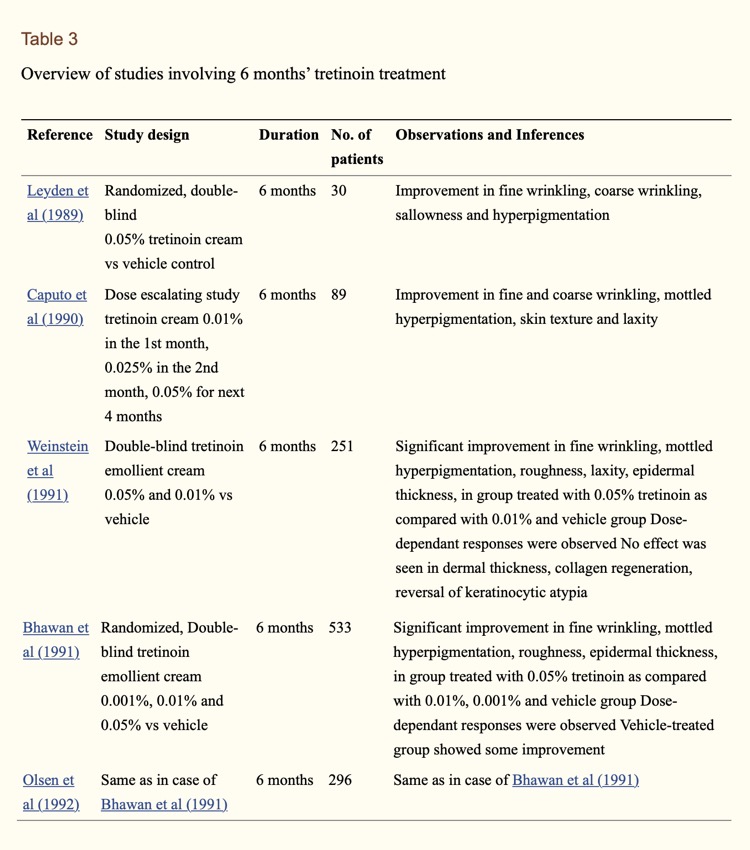
Copyright: Mukherjee S, Date A, Patravale V, Korting HC, Roeder A, Weindl G. Retinoids in the treatment of skin aging: an overview of clinical efficacy and safety. Clin Interv Aging. 2006;1(4):327-348. doi:10.2147/ciia.2006.1.4.327
Retinoids in the treatment of skin aging: an overview of clinical efficacy and safety: Retinaldehyde
First published: 2006
Main points: At the end of 4 months, considerable reduction in the surface roughness and coarse wrinkling was observed. Moreover, retinaldehyde treatment was associated with very few adverse effects.
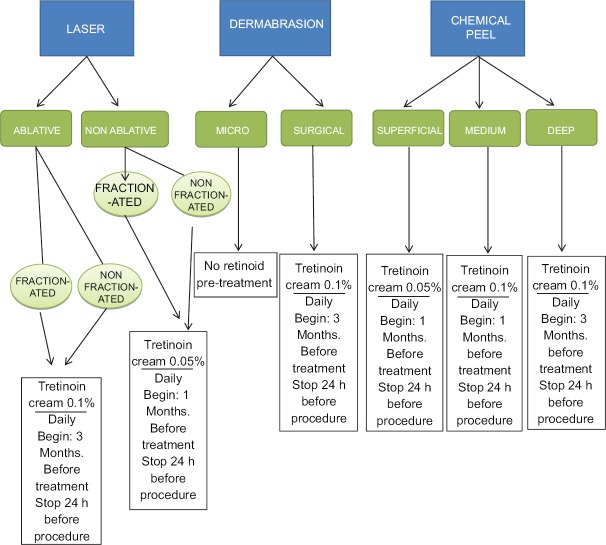
Copyright: Leyden J, Stein-Gold L, Weiss J. Why Topical Retinoids Are Mainstay of Therapy for Acne. Dermatol Ther (Heidelb). 2017;7(3):293-304. doi:10.1007/s13555-017-0185-2
Retinoids: Literature Review and Suggested Algorithm for Use Prior to Facial Resurfacing Procedures
First published: 2006
Main points: The use of tretinoin would provide the most benefit when used prior to therapies that cause deep wounds when compared to those procedures that cause only superficial epidermal injury.
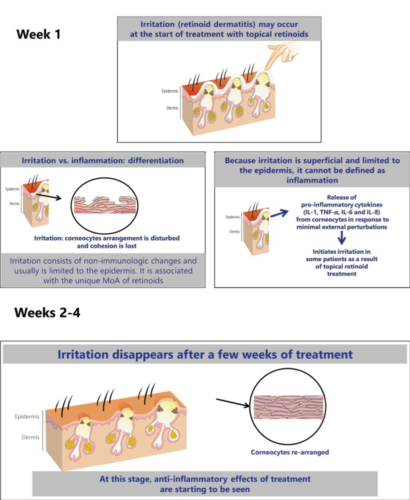
Copyright: Leyden J, Stein-Gold L, Weiss J. Why Topical Retinoids Are Mainstay of Therapy for Acne. Dermatol Ther (Heidelb). 2017;7(3):293-304. doi:10.1007/s13555-017-0185-2
Why Topical Retinoids Are Mainstay of Therapy for Acne
First published: 2017
Main points: The scientific rationale for use of topical retinoids in acne is clear. Clinical data from many thousands of patients show these agents are highly efficacious on both noninflammatory and inflammatory acne lesions. Expert groups and evidence-based guidelines agree that topical retinoids should be considered the foundation of acne therapy.
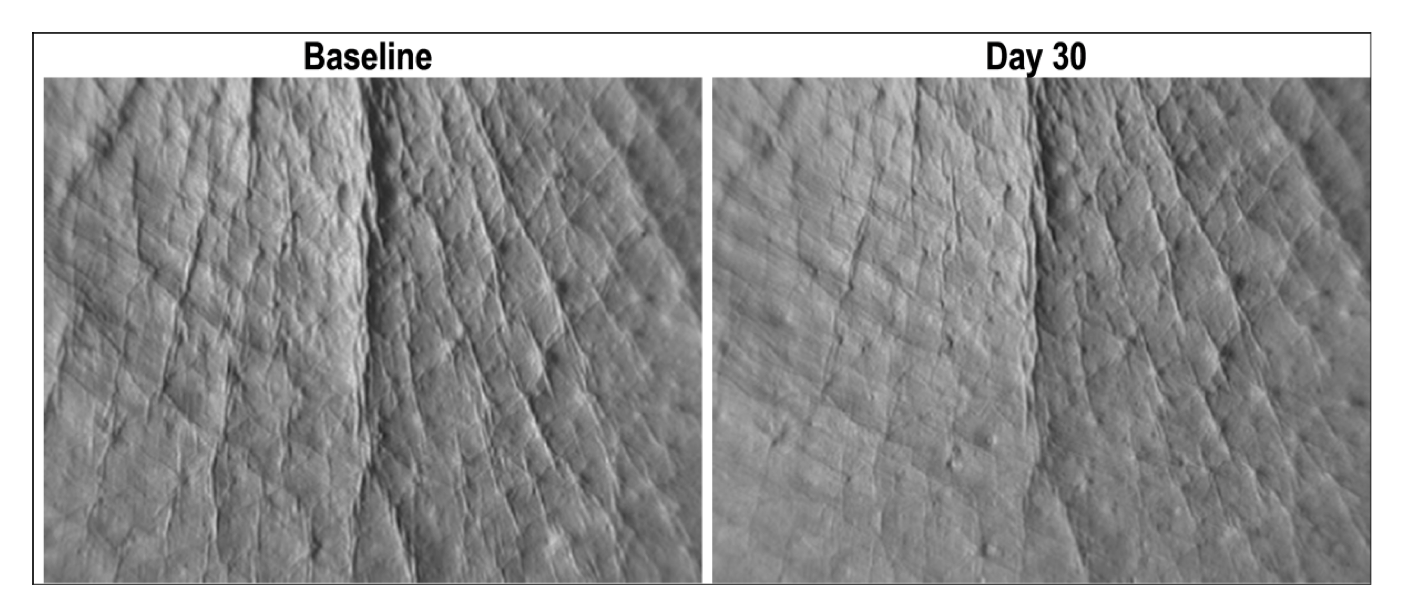
Copyright: Sergio Escobar Audrey Valois Marion Nielsen Brigitte Closs Delphine Kerob
Effectiveness of a formulation containing peptides and vitamin C in treating signs of facial aging: three clinical studies
First published: 10 October 2020
Main points: This combination of anti‐aging ingredients: peptides and Vitamin C provide significant results on improving facial wrinkles and radiance, and crow’s feet wrinkles, forehead wrinkles and nasolabial folds decrease.


